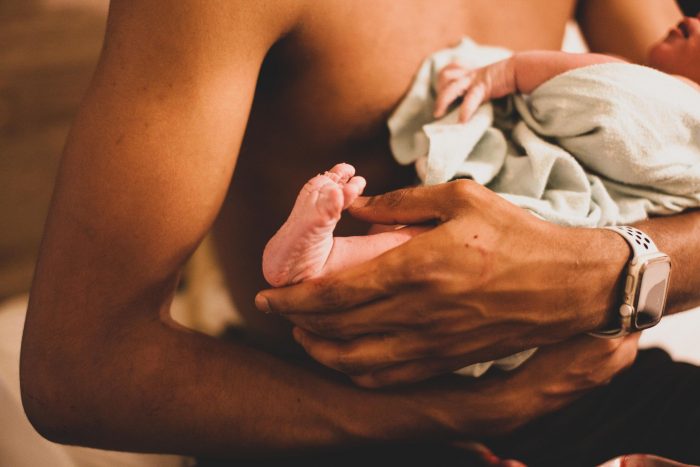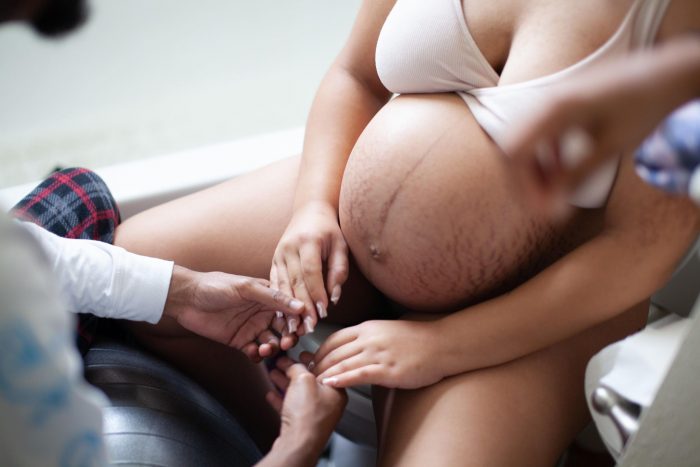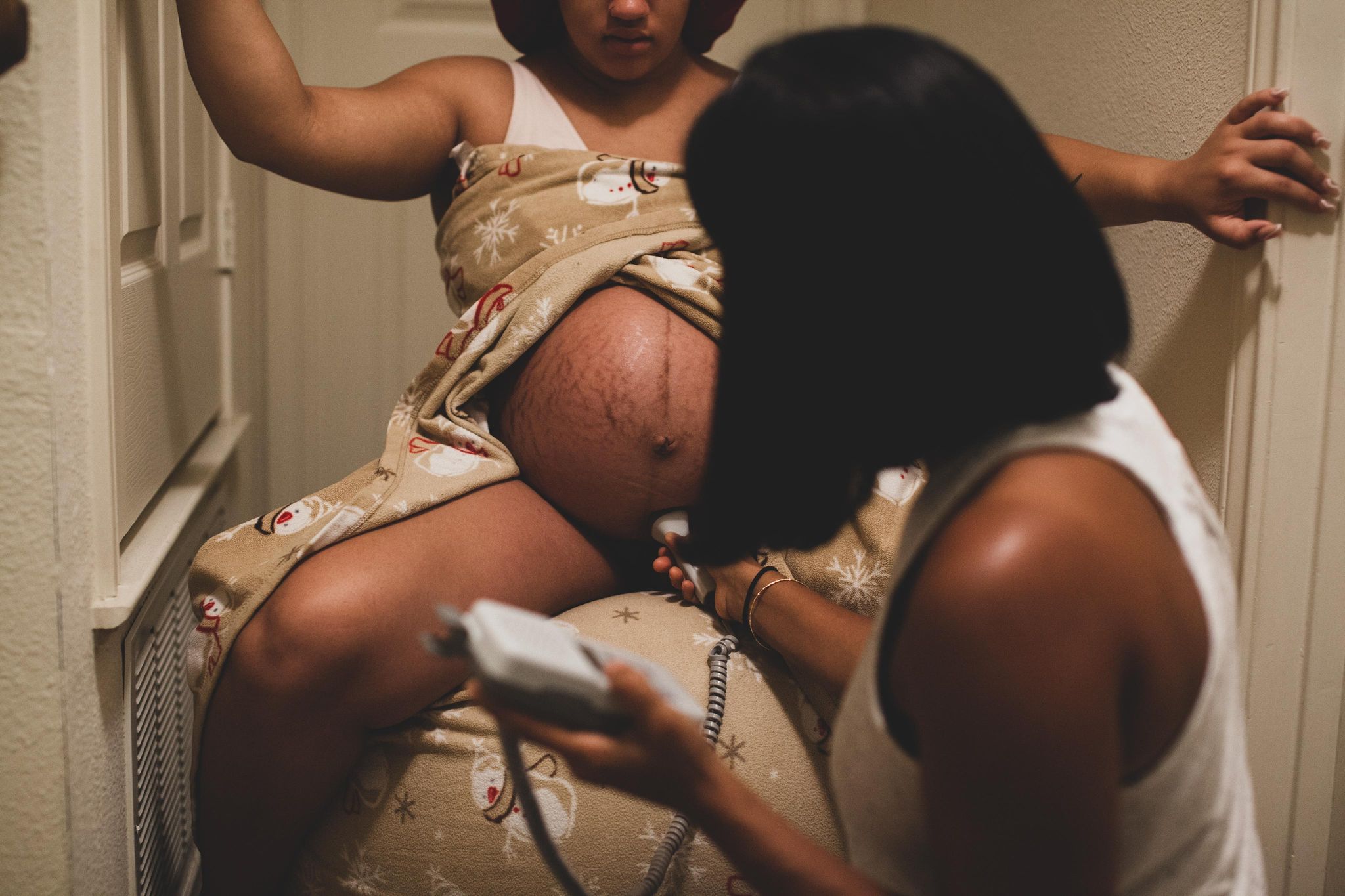Recently I was approached by a University of Texas student on social media to be interviewed for a research project on my experiences related to black maternal health. Her project focused on developing a venture aimed at improving the maternal mortality and morbidity rate for minority women (shout out to Nikita for her work).
RELATED READING :: The Importance of Advocating for your Health as a Black Expectant Mother
Like most of us moms out there I had forgotten about my birth experience, so caught up in the tasks that come with being a new mom. It was only until prompted by her questions that I truly reflected on the birth of my firstborn. And while I can’t exactly say that my experiences/treatment were completed attributed to my race as a Black women, I also can’t say that they weren’t attributed to my race. What I can say is that all women, especially Black women, need to be treated equally when it comes to their maternal health.
 Black women are three times more likely to have pregnancy related mortality or 43.5 deaths out of every 100,000 live births. This is compared to the average in the United States of 17.2 deaths out of every 100,000 live births.
Black women are three times more likely to have pregnancy related mortality or 43.5 deaths out of every 100,000 live births. This is compared to the average in the United States of 17.2 deaths out of every 100,000 live births.
My own experiences consisted of a very long labor (approximately 21 hours), infection resulting in a fever, an ineffective epidural and the possibility of a C-section.
Initially, when my water broke, the nurse dismissed my observation. Only upon my insistence did she decide to check and eventually confirmed by suspicion. Not even an hour later, in a pain induced fog, I was asked if I wanted an epidural, to which I agreed. At first, it worked and I was able to get some rest. Several hours lapsed and I started to feel contractions and the hospital bed was wet. After notifying the nurse, who contacted the anesthesiologist, it was again confirmed something was wrong.
The epidural had somehow come out and was not working.
They made an adjustment and assured me all was well. It wasn’t. The adjustment cause me to be numb from the breast down to my toes, but feeling every contraction thereafter until I delivered our son. Because of the numbness I could not move myself in the bed and had to be manually turned by the nurses and my husband every hour. After 18 hours of labor and numerous manual turns, I developed an infection, resulting in a high fever. The doctor and nurse told me that needed to administer antibiotics and deliver soon. After being checked again, I was finally dilated to 10; to my relief.
 But again, because of my numbness, I could not feel if I was pushing correctly. At some point during the process, the nurse left, and advised my husband to have me continue pushing. At the time, it did not seem odd, but thinking back almost 9 years later, it gives me pause wondering why a medical profession would leave (my second birth this did not happen).
But again, because of my numbness, I could not feel if I was pushing correctly. At some point during the process, the nurse left, and advised my husband to have me continue pushing. At the time, it did not seem odd, but thinking back almost 9 years later, it gives me pause wondering why a medical profession would leave (my second birth this did not happen).
After hours of pushing, I was making little progress and was told to take a break. I was exhausted, mentally and physically. However, in my exhaustion, I observed something. In the corner, the doctor and nurse are having a quiet conversation. By the looks on their faces, they seem concerned, but they were not communicating with us. Not me, not my husband, not my mother. Only after speaking up, did they come over to discuss the options. If I can’t push him out, they wanted to use forceps or suction, to which I immediately said “no.” The next option was a C-section. Again, I said “no”. I was determined to get him out.
So we prayed. My husband and I prayed. And started pushing yet again. Finally, after more than 2 hours of pushing, he was out. But mostly importantly, he was healthy.
Almost 5 years later I had a daughter and had a very different birth experience. After the birth of my son, I almost immediately switched doctors. Told him of my experience, to which he vowed, would never happen again. And he remained true to his word. Not only was it very different, it was fast. 4 hours of labor and 4 pushes later, our daughter was born.
My experience while not horrible, was not ideal as I reflect back all those years ago. I was somewhat able to take charge of my experience, because I had done my research. I was informed. I was vocal. But what happens to all of those mothers whose voices are not heard. Those who are silenced. Those who because of being silenced receive less than adequate maternal care sometimes resulting in their deaths. Children left without a mother.
Maternal health is important. Black Maternal Health is equally if not more important in the United States. Let’s use our voices to make a change. A change for all mothers no matter their race, ethnicity, background, religion or status in this nation.
Photo Credit :: Queendom Care











Love this! Love your story and that your husband advocated for your birth story to be written as you envisioned!